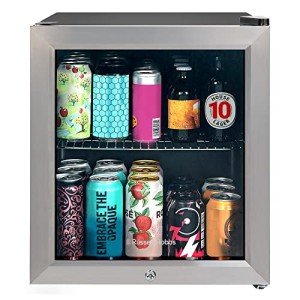20 Questions You Should Have To Ask About Temperature-Controlled Fridges Before Purchasing It
The Importance of Temperature-Controlled Fridges in Various Industries
Temperature-controlled fridges are an essential part in numerous industries, including health care, food and beverage, pharmaceuticals, and labs. These specialized refrigerators are designed to preserve a consistent temperature, which is vital for storing sensitive items, samples, and compounds. In this short article, we will check out the different types of temperature-controlled fridges, their applications, and the benefits they provide.
What are Temperature-Controlled Fridges?
Temperature-controlled fridges, likewise understood as precision refrigerators, are created to preserve an exact temperature level variety. They are geared up with advanced temperature control systems, which can be set to particular temperature levels, and are developed to minimize temperature changes. These fridges are readily available in different sizes, from small, compact units to large, walk-in models.
Types of Temperature-Controlled Fridges
There are several types of temperature-controlled fridges, each developed for particular applications:
- Laboratory Refrigerators: These fridges are designed for lab settings and are normally used to store biological samples, vaccines, and other temperature-sensitive materials.
- Pharmaceutical Refrigerators: These fridges are designed for storing pharmaceutical items, consisting of medications, vaccines, and other temperature-sensitive substances.
- Medical Refrigerators: These fridges are created for medical settings and are usually used to save medical supplies, consisting of vaccines, blood, and other temperature-sensitive materials.
- Food and Beverage Refrigerators: These fridges are developed for food and beverage applications, including dining establishments, coffee shops, and catering services.
- Industrial Refrigerators: These fridges are created for commercial applications, including food processing, production, and storage.
Applications of Temperature-Controlled Fridges
Temperature-controlled fridges have various applications across various markets:
- Healthcare: Temperature-controlled fridges are used in hospitals, centers, and healthcare facilities to save medical materials, including vaccines, blood, and other temperature-sensitive products.
- Food and Beverage: Temperature-controlled fridges are utilized in dining establishments, cafes, and catering services to keep food and drinks at precise temperatures, ensuring food safety and quality.
- Pharmaceuticals: Temperature-controlled fridges are used in pharmaceutical production, storage, and distribution to keep the quality and efficacy of medications and vaccines.
- Laboratories: Temperature-controlled fridges are used in labs to store biological samples, vaccines, and other temperature-sensitive products.
Benefits of Temperature-Controlled Fridges
Temperature-controlled fridges offer several advantages, including:
- Precision Temperature Control: Temperature-controlled fridges supply precise temperature level control, which is vital for storing delicate products, samples, and compounds.
- Increased Safety: Temperature-controlled fridges ensure the safe storage of temperature-sensitive materials, lowering the danger of contamination and wasting.
- Enhanced Quality: Temperature-controlled fridges maintain the quality of items, samples, and compounds by saving them at exact temperatures.
- Regulatory Compliance: Temperature-controlled fridges help organizations abide by regulative requirements for the storage of temperature-sensitive products.
- Energy Efficiency: Temperature-controlled fridges are designed to be energy-efficient, decreasing energy intake and costs.
Features to Consider When Choosing a Temperature-Controlled Fridge
When choosing a temperature-controlled refrigerator, think about the following functions:
- Temperature Control: Look for a refrigerator with advanced temperature level control systems, consisting of digital temperature screens and alarms.
- Insulation: Choose a fridge with high-quality insulation to lessen temperature level fluctuations.
- Shelving: Consider a fridge with adjustable shelving to accommodate different sizes and types of containers.
- Humidity Control: Look for a refrigerator with humidity control includes to keep ideal humidity levels.
- Security: Choose a fridge with secure locking systems to avoid unauthorized access.
- Tracking: Consider a refrigerator with remote tracking capabilities to track temperature and humidity levels.
- Upkeep: Look for a fridge with easy upkeep features, consisting of changeable filters and cleaning systems.
Frequently Asked Questions
Q: What is the distinction between a temperature-controlled refrigerator and a basic refrigerator?
A: A temperature-controlled fridge is designed to preserve an accurate temperature variety, while a basic refrigerator is developed for general-purpose storage.
Q: What are the benefits of using a temperature-controlled refrigerator in a laboratory setting?
A: Temperature-controlled fridges in lab settings offer precise temperature control, increased safety, enhanced quality, and regulative compliance.
Q: How do I select the ideal temperature-controlled refrigerator for my company?
A: Consider aspects such as temperature control, insulation, shelving, humidity control, security, tracking, and upkeep when selecting a temperature-controlled refrigerator.
Q: Can temperature-controlled fridges be used for keeping food and drinks?
A: Yes, temperature-controlled fridges can be used for keeping food and drinks, specifically in restaurants, cafes, and catering services.
Q: Are temperature-controlled fridges energy-efficient?
A: Yes, temperature-controlled fridges are developed to be energy-efficient, lowering energy intake and costs.
In conclusion, temperature-controlled fridges are necessary elements in various industries, providing accurate temperature level control, increased safety, improved quality, and regulative compliance. When selecting Countertop Fridges Frydge -controlled refrigerator, consider functions such as temperature control, insulation, shelving, humidity control, security, tracking, and upkeep. By choosing the best temperature-controlled refrigerator, companies can guarantee the safe and effective storage of temperature-sensitive products.
